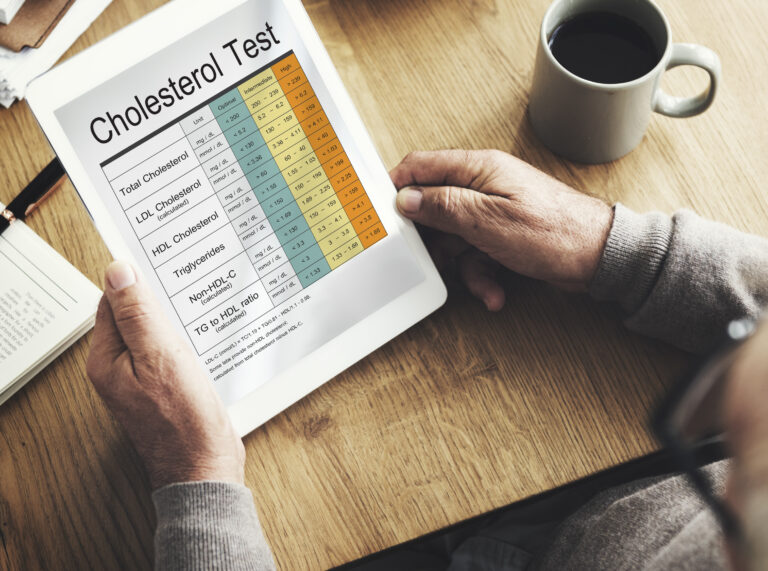What is the optimal level of low-density lipoprotein (LDL) cholesterol for individuals living with heart disease?

LDL is considered as “bad” cholesterol as it accumulates in the walls of arteries, leading to narrowing and hardening of arteries and obstruction in blood flow leads to coronary artery disease. In a recently published study showed the low LDL level reducing the risk of atherosclerotic vascular events.1
Human newborn babies have very low levels of LDL compared to young children and adults. In a study among Indian infants the average LDL-cholesterol was 69.4 ± 19.4 mg/dl which is at the higher side compare to western population. In a study among western infant population showed LDL‑cholesterol 26.2 ± 10.1 mg/dl.2
Reducing the blood LDL levels in Adults subsequently reduces the risk of myocardial infarction, stroke, and other atherosclerotic events. So it is very important to know the WHAT SHOULD BE YOUR LIPID TARGET?
LDL-C goal depends upon various factors and it cannot be same in people with same age. It depends on comorbidities like diabetes, history of any cardiovascular disease, smoking, obesity etc. According to current European guidelines and Indian guidelines recommending blood LDL level of 40 mg/dL is regarded as a target threshold for treating patients who have suffered two or more major atherosclerotic events (e.g. history of heart attack/coronary artery disease).
Although most cholesterol-lowering medications have demonstrated notable effectiveness but many time statins alone many times fall short of the lipid targets specified by the guidelines. In order to considerably minimize the risk of cardiovascular events, it is thought that having an LDL level of 40 mg/dL or less is helpful, according to the evidence that has been gathered from large-scale clinical trials measuring cardiovascular outcomes. It has been demonstrated that an 80%–90% drop in PCSK9 blood levels with inclisiran (siRNA) can reduce LDL levels by 50% without having any negative side effects.
Numerous clinical studies have been carried out to look into the role that lowering LDL levels has in reducing cardiovascular risk. These trials suggest that for every unit of LDL that is reduced by 1 mmol/L, the risk of cardiovascular events can be decreased by 22%. For individuals with atherosclerotic vascular disease, a blood LDL level between 25 and 50 mg/dL has been considered optimal.
It is crucial for patients with a history of history of heart attack/stroke, chronic kidney disease (CKD) or any other cardiovascular disease to keep their LDL-C level below 40 mg/dl, which may involve taking multiple medications.
1. Tobert JA. LDL Cholesterol-How Low Can We Go? Endocrinol Metab Clin North Am. 2022 Sep;51(3):681-690. doi: 10.1016/j.ecl.2022.01.005. Epub 2022 Jul 4.
2. Kumar, Ashok; Pandit, Kaushik1,2; Chatterjee, Purushottam3; Mukhopadhyay, Pradip1; Ghosh, Sujoy1,. Lipid Profile in Infant. Indian Journal of Endocrinology and Metabolism 25(1):p 20-22, Jan–Feb 2021.
Get a Call Back
Categories
- Cardiac
- Heart Disease
- Cholesterol
- Low-density Lipoprotein Cholesterol
- Life Style Modification
Health Blogs
The Benefits of Early Dinners: A Blend of Tradition and Science
The Benefits of Early Dinners: A Blend of Tradition and Science The Benefits of Early Dinners: A Blend of Tradition and Science In today’s fast-paced world, meal timing often
Kitchen Cures: Healing the Natural Way with Grandma’s Wisdom
Kitchen Cures: Healing the Natural Way with Grandma’s Wisdom Kitchen Cures: Healing the Natural Way with Grandma’s Wisdom Who doesn’t love quick, easy solutions to nagging he
Why Eating Nuts Before Meals is a Smart Choice
Why Eating Nuts Before Meals is a Smart Choice Why Eating Nuts Before Meals is a Smart Choice Adding a handful of nuts to the diet, especially before meals, can provide several hea
The Surprising Secret to Coffee’s Heart-Healthy Benefits: It is All About Timing
The Surprising Secret to Coffee’s Heart-Healthy Benefits: It is All About Timing The Surprising Secret to Coffee’s Heart-Healthy Benefits: It is All About Timing For many, the
5 Simple Morning Habits for a Healthier Start to the Year
5 Simple Morning Habits for a Healthier Start to the Year 5 Simple Morning Habits for a Healthier Start to the Year A new year offers a fresh opportunity to embrace healthier habit
Type 2 Diabetes and Mental Health: The Connection
Type 2 Diabetes and Mental Health: The Connection Type 2 Diabetes and Mental Health: The Connection Type 2 diabetes mellitus (T2DM) is a chronic condition affecting millions worldw
Is Sugar Really the Enemy? Unpacking Diabetes Myths
Is Sugar Really the Enemy? Unpacking Diabetes Myths Is Sugar Really the Enemy? Unpacking Diabetes Myths Diabetes is a growing public health concern worldwide, with type 2 diabetes
Tailoring the Dose of Exercise for Effective Glycemic Management in Type 2 Diabetes
Tailoring the Dose of Exercise for Effective Glycemic Management in Type 2 Diabetes Tailoring the Dose of Exercise for Effective Glycemic Management in Type 2 Diabetes Type 2 diabe
Ganesh Chaturthi and Diabetes: A Balancing Act
Ganesh Chaturthi and Diabetes: A Balancing Act Ganesh Chaturthi and Diabetes: A Balancing Act Ganesh Chaturthi, a vibrant and beloved Indian festival celebrated with great enthusia
Asthma in Children: Symptoms, Triggers, and Management
Asthma in Children: Symptoms, Triggers, and Management Asthma in Children: Symptoms, Triggers, and Management Asthma is a significant health concern among children in India, with i
Heart-Healthy Diet: Foods to Include and Avoid
Heart-Healthy Diet: Foods to Include and Avoid Heart-Healthy Diet: Foods to Include and Avoid India’s traditional diet is often heavy on carbohydrates, high-fat dairy product
Can I Donate Blood if I’m Diabetic?
Can I Donate Blood if I’m Diabetic? Can I Donate Blood if I’m Diabetic? If you’re diabetic, you may wonder whether you can donate blood. The good news is that inmany
Top Foods for Managing High Blood Pressure
Top Foods for Managing High Blood Pressure Top Foods for Managing High Blood Pressure High blood pressure is a common condition that affects millions of people worldwide. If left u
Loneliness and Diabetes: How Social Isolation Raises Your Risk
Loneliness and Diabetes: How Social Isolation Raises Your Risk Loneliness is a mental health problem that has been proven to have a significant impact on quality of life and health
Navigating Winter with Asthma in India: Tips for a Breath-Friendly Season
Navigating Winter with Asthma in India: Tips for a Breath-Friendly Season As winter sets in across India, individuals with asthma face unique challenges in managing their respirato
What is the optimal level of low-density lipoprotein (LDL) cholesterol for individuals living with heart disease?
What is the optimal level of low-density lipoprotein (LDL) cholesterol for individuals living with heart disease? LDL is considered as “bad” cholesterol as it accumulates in th
Diwali Delights: Navigating Healthy Celebration with 10 Essential Tips
Diwali Delights: Navigating Healthy Celebration with 10 Essential Tips Diwali, the festival of lights, is a time of joy, togetherness, and of course, indulgence in delicious sweets
Coping with COPD: Tips for Living Well with Chronic Obstructive Pulmonary Disease
Coping with COPD: Tips for Living Well with Chronic Obstructive Pulmonary Disease Chronic Obstructive Pulmonary Disease (COPD) is a chronic respiratory condition that can significa
How to live a healthy life after cancer?
How to live a healthy life after cancer? Cancer is definitely a debilitating disease that compromises our life’s quality and length of survival.The experience with cancer is uniq
Managing Glucose and Stress in Women with Type 2 Diabetes
Managing Glucose and Stress in Women with Type 2 Diabetes: The Power of Aerobic Exercise and Deep Breathing Diabetes is a type of metabolic disease. It has a strong connection with
Safe and Effective Exercises for Asthma Management
Safe and Effective Exercises for Asthma Management Safe and Effective Exercises for Asthma Management Asthma is a chronic lung condition that affects the airways, making it difficu






















